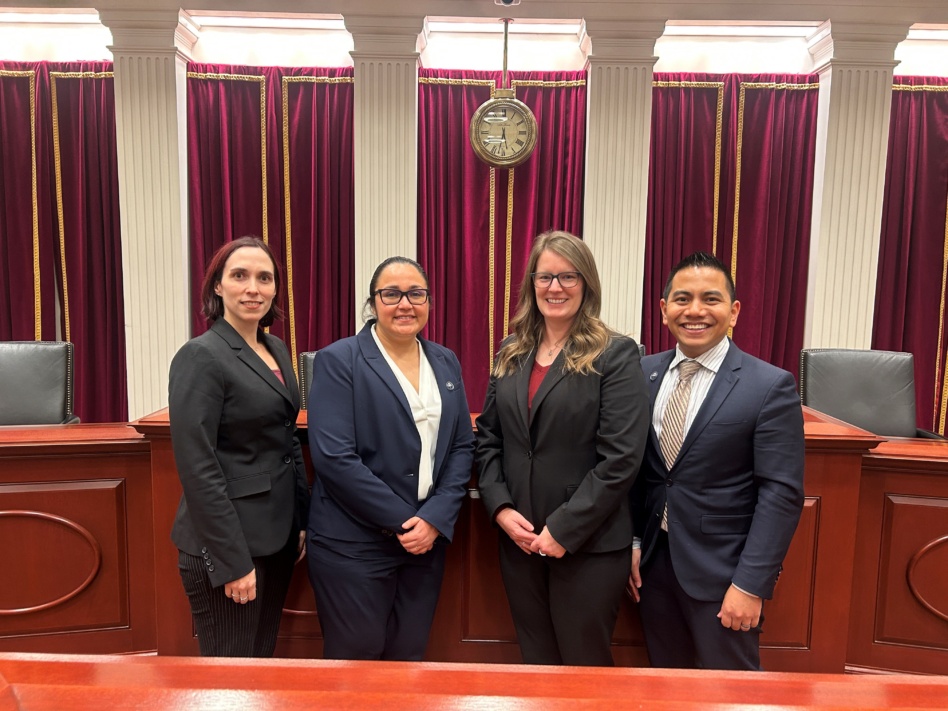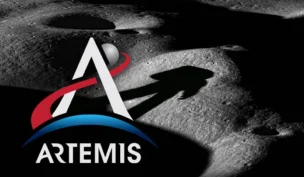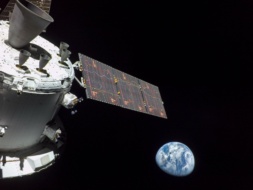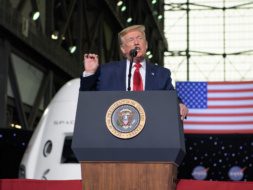Three Space Force officers represented the service on the world stage in a new way last week: as the North American team at an international space law competition in Azerbaijan.
Space moot 101: The Manfred Lachs Space Law Moot Court Competition, which was established in 1992, gives students the opportunity to practice both written and oral argument skills arguing each side of a specific space case. Each year, regional competitions are held in March for teams in Europe, the Asia-Pacific, Africa, Latin America, and North America. The winning team from each region goes on to argue at the finals at the IAC in the fall.
Competing represents an incredible investment of time and energy. Written arguments can stretch to 40 pages, with a 9,000 word argument for each side. Teams also begin practicing their oral argument at least once or twice a week beginning in January, said Andrea Harrington, co-director of McGill University’s Institute of Air and Space Law, who coached this year’s North American team.
Space law is a very new field with limited case law or precedent, so debating issues in the moot court gives the entire community an opportunity to think through a hypothetical that may become reality as technology advances, according to Michelle Hanlon, executive director of the University of Mississippi’s Center for Air and Space Law.
“Because space law is so young, all of these ideas are very novel; it’s kind of fun to see people play around with them and figure out what works,” she said.
This year’s case: The 2023 case is Argyliam v. Kologian, two fictional countries. In this case, Argyliam launched a satellite with laser capabilities, which it used to try to take a third nation’s spy satellite offline. In the process, however, the laser missed and destroyed a Kologian satellite.
Separately, an earlier generation Argyliam laser satellite lost control and was headed towards a congested orbit that included five Kologian satellites. Kologian used an anti-satellite weapon to destroy the out-of-control sat.
Students defending the case must consider both whether each nation’s actions were legal, as well as who has liability for damages.
Meet the team: This year, the North American team that competed at the IAC consisted of three active-duty Space Force majors who work as acquisition officers: Joey Aguilo, Alexa Eggert, and Ashley Gonzales. Harrington, who is now at McGill, began working with the team during her last job at Air University.
Globally, most of the teams come from law schools, Harrington said. It’s incredibly rare to have an all-military team with no legal background even participate in the event, let alone make it to the finals.
“They’re all engineers. Not a single one of them went to law school,” she said. “The fact that our Space Force guardians were able to put in work is incredibly impressive.”
Support from up high: Though the North American team didn’t emerge from the competition victorious, Harrington said the level of support the Guardians received from higher ups in the Space Force leading up to the event was a big win.
“I’m very pleased that the Space Force is taking the importance of knowledge about space law and international space law seriously,” she said. “It’s raised awareness about space law and policy in a significant way, and I think that’s been embraced at all levels of the Space Force.”
Next year’s case: The 2024 case—Angani vs. Bolvanger—looks at the tension between megaconstellations and the dark skies required for astronomy research, in addition to liability issues posed by space debris.
North American teams will make their arguments March 14-15 in DC. Finalists will compete at the IAC in Milan in October 2024.




